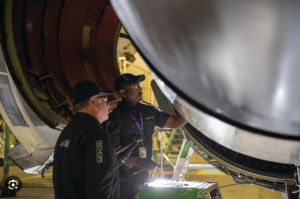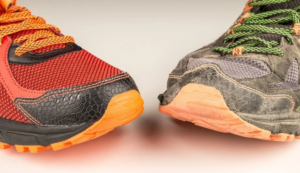A Key to Quality Assurance in Diverse Industries
In the realm of quality assurance, abrasion testing stands as a crucial process that ensures the durability and longevity of materials across various industries. This comprehensive overview delves into the essence of abrasion testing, its significance, and the pivotal role it plays in maintaining product quality.
- Understanding Abrasion Testing:
- Defining Abrasion Testing: Abrasion testing involves subjecting materials to wear and friction to simulate real-world conditions. It evaluates a material’s resistance to wear and tear over time.
- Simulation of Real-world Wear: The purpose is to mimic the abrasive forces materials might encounter in their intended use, helping manufacturers predict performance and longevity.
- Significance Across Industries:
- Automotive Sector: Abrasion testing is vital for automotive components like tires, brake pads, and interior materials to ensure they withstand constant use and environmental conditions.
- Textile Industry: Fabrics undergo abrasion testing to determine their durability, especially in areas prone to friction, such as clothing seams or upholstery.
- Construction Materials: Concrete, tiles, and flooring materials are subjected to abrasion tests to guarantee they can withstand foot traffic and other environmental factors.
- Electronics: Abrasion testing is applied to screens, buttons, and casings of electronic devices to ensure they can endure everyday handling.
 Materials Subjected to Abrasion Testing:
Materials Subjected to Abrasion Testing:
- Metals: Various alloys and coatings are tested to evaluate their resistance to abrasion, preventing wear and corrosion.
- Polymers and Plastics: Materials like PVC, polyethylene, and other plastics undergo abrasion testing to assess their wear resistance in different applications.
- Ceramics: Tiles, pottery, and industrial ceramics are tested to ensure they can endure friction and abrasive forces.
- Ensuring Quality Products:
- Predictive Quality Assurance: Abrasion testing allows manufacturers to identify potential weaknesses in materials before they reach the market, preventing product failures.
- Cost Savings: By identifying wear-prone areas early in the development process, companies can make informed decisions about material selection, ultimately saving costs.
- In the pursuit of creating products that stand the test of time, abrasion testing emerges as an invaluable tool. From automotive components to everyday consumer goods, the insights gained through abrasion testing enable manufacturers to engineer products that not only meet but exceed quality expectations. As industries continue to innovate, the role of abrasion testing remains paramount in ensuring the resilience and longevity of materials in diverse applications. Interested in incorporating abrasion testing to your manufacturing process? Contact us!

We can help you determine your own internal D.O.E. (Design of Experiments) to ensure our Sutherland 2000 Rub Tester and accessories are working properly for optimal performance in your testing needs.
Leave a Reply